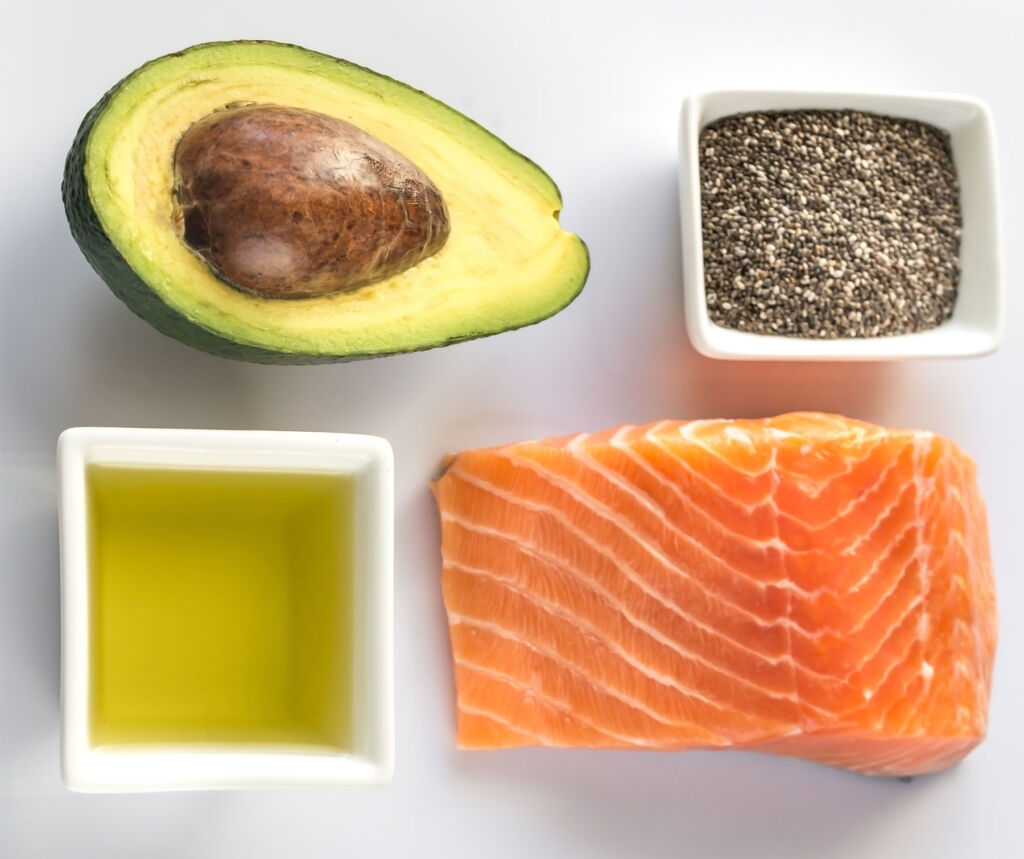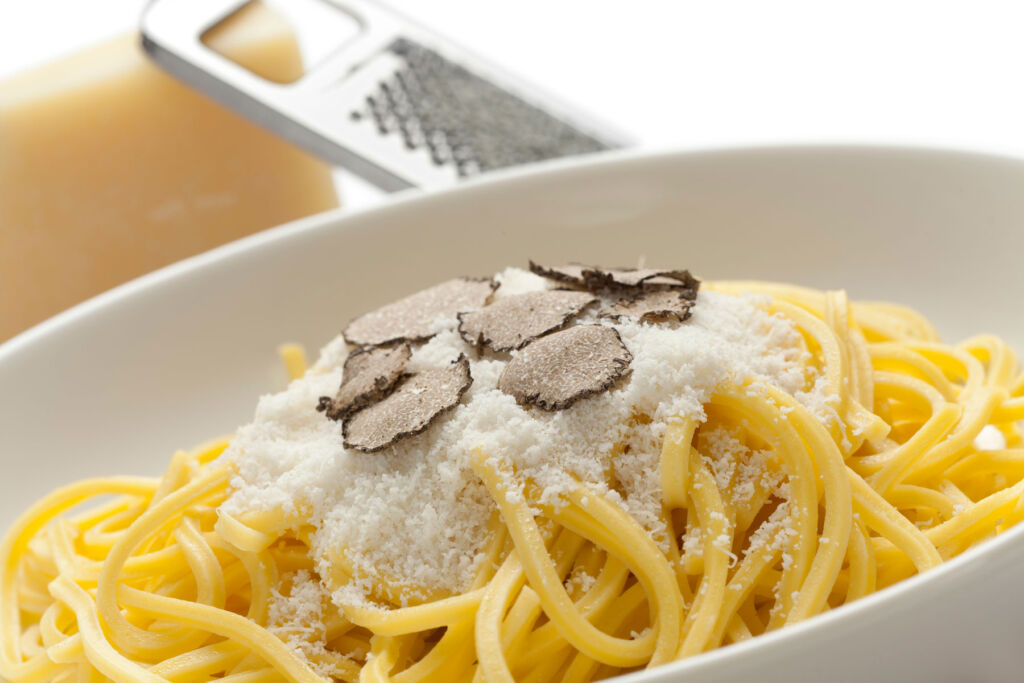
Patrick Holford, a mental health expert and the founder of the Food for the Brain Foundation, explains how a diet can increase the risk of dementia, the danger of consuming too much sugar, and why omega-3 fats and ketone production are hugely beneficial for the brain.
According to a recently published study of over 100,000 people[1], increased intake of omega-3, either from diet or supplements or having a higher omega-3 blood level, cuts the risk for dementia by a fifth (20%).
The brain depends on omega-3 fats for signalling systems which enable us to think. This means eating oily fish such as salmon, mackerel, sardines, and kippers or supplementing with fish oils.

A UK Biobank study shows those supplementing fish oils have 12% less dementia.[2] While the benefits of consuming fish oils are reasonably well known, far fewer people are aware that very high-fat ‘ketogenic’ diets, which are low in carbs and contain almost no sugar, substantially reduce dementia risk. The brain can derive a lot of its energy needs from ketones which come from fats.
New evidence shows that brain cells clog up if they are presented with too much energy from sugar (glucose or fructose) that is derived from carbs rather than from fats. Type 2 diabetes, a consequence of too much sugar, almost doubles the risk for dementia.[3]
Carb trouble
The trouble with low-fat diets and low-fat foods, in general, is that they are inevitably higher in carbohydrates, especially sugar. Carbohydrates are rapidly digested down to glucose which is an important brain fuel in the correct quantity.
However, eating too much refined ‘white’ carbohydrate on a regular basis, from sugar to white bread, rice or pasta, messes up the glucose supply to the brain by promoting insulin resistance.[4]

Insulin is the hormone that helps carry glucose into the brain, and, with too much sugar and carbs in the diet, insulin receptors shut down, effectively going ‘deaf’. This is called insulin resistance and leads to a paradoxical increase in blood glucose, but poor supply into the brain. In adolescents with insulin resistance, cognitive abilities decline, and the area associated with Alzheimer’s shrinks.[5]
Even slightly raised blood glucose level within the ‘normal’ range, from age 35, predicts increased risk for dementia several decades later.[6]
An alternative
Brain cells, however, can run on an alternative fuel: ketones, which are made in the liver from fat. Brain cells prefer to run on ketones when they are available, as these give the brain an energy boost. A newborn baby’s brain grows rapidly as a consequence of running on ketones.

The body can make ketones by consuming a kind of fat called medium chain triglycerides (MCTs), found in fatty foods such as oily fish and coconut oil, and memory can improve.
Case study
Alan was diagnosed with Alzheimer’s and vascular dementia. In December 2022, he completed—with the support of his wife—the online Cognitive Function Test and dementia risk questionnaire at foodforthebrain.org. This test shows you what diet and lifestyle factors are driving your risk for dementia.
Following this, Alan lowered his intake of sugar and carbohydrates, started taking C8 oil every day and went ‘ketogenic’ five days a month, avoiding all carbs and eating high fat. He also increased exercise, became more mentally and socially active and supplemented omega-3 fish oils alongside B vitamins.
By March 2023, three months later, he had made vast improvements. “I’ve got my husband back from dementia”, reported his wife, Dot. “His brain is working again. We can have normal conversations.”
Alan has joined a Morris dancing group and is back in the garden. “I had completely forgotten how to garden,” says Alan. “I had allotments for over 35 years, so it was a shock. Since following foodforthebrain.org’s COGNITION programme, I’ve had the seeds out, got the pots ready for planting and planned when and where things should go.”
By cutting out all carbs (bread, rice, pasta and anything with sugar in it) and having more high-fat foods such as oily fish, fattier meats, avocadoes, taramasalata (fish roe), nuts, seeds, beans and lots of green vegetables and salads with olive oil and a few berries, the body switches to running on ketones.

A simple breath test, called Ketoscan Lite, or a ketone urine stick, confirms the ‘switch’ to going ketogenic has occurred. It usually takes up to three days, so it is best to do this for at least five to seven days a month.
About the Author
Patrick Holford is a Nutrition and Mental Health expert & Founder of the Institute for Optimum Nutrition, VitaminC4Covid, and the charitable Food for the Brain Foundation, where he directs their Alzheimer’s prevention project.
Patrick reads hundreds of studies a year, assimilating the latest health breakthroughs and turning them into practical advice to make it easy for everyone to live a healthy life. He is the author of 46 health books translated into over 30 languages. www.patrickholford.com
About Food for the Brain Foundation
The Food for the Brain Foundation (foodforthebrain.org) is an educational and research charity focussing on dementia prevention. It’s free online validated Cognitive Function Test, followed by the Dementia Risk Index questionnaire assessing eight drivers of dementia, including ‘brain fats’ and ‘low carbs & GL’, thus identifying those eating too many carbs and not enough brain fats, then advising them what to do.
Watch this film to understand how your brain makes energy from ketones.
References
The references below are to studies referred to. Enter the ‘doi number’ into Google to find the full paper.
- [1]. Wei BZ et al Am J Clin Nutr. 2023 doi: 10.1016/j.ajcnut.2023.04.001.
- [2]. Huang Y et al. Front Neurosci. 2022 doi: 10.3389/fnins.2022.910977.
- [3]. https://foodforthebrain.org/is-sugar-killing-your-brain/.
- [4]. https://foodforthebrain.org/is-sugar-killing-your-brain/.
- [5]. Yau PL et al. Pediatrics. 2012 doi: 10.1542/peds.2012-0324.
- [6]. Zhang X et al. Alzheimer’s Dement. doi: 10.1002/alz.12641.
Read more health features, guides and opinion pieces here.
![]()




You must be logged in to post a comment.